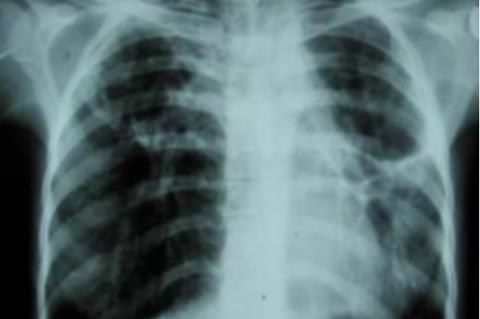Inhaling nontuberculous mycobacteria is common for most people. The bacteria are found in water systems, soil and dust worldwide and, for many, cause no harm.

For those with underlying conditions, nontuberculous mycobacteria (NTM) can infect the lungs, causing symptoms similar to tuberculosis. Inflammation can cause a chronic and sometimes bloody cough as well as scarring, which can make respiratory infections like bronchitis and pneumonia more common. Due to the slow growth of the bacteria, proper diagnosis and treatment can take months.
In a new study, Tulane University researchers have developed a CRISPR-based platform for diagnosing NTM infections where blood testing can yield results in as little as two hours.
Fast and accurate
The preliminary findings, published in the American Journal of Respiratory and Critical Care Medicine, showed that the blood test was able to accurately identify more than 93% of patients with an NTM infection. Rapid, accurate diagnosis has never been more important as cases of NTM infections have continued to increase annually, spreading from subtropical regions to more temperate zones in part due to global climate change.
“NTM infection is highly underestimated, and due to the slow diagnosis of it, patients with NTM infection are not effectively treated,” said Bo Ning, corresponding author and assistant professor of molecular biology at Tulane University School of Medicine. “Importantly, our blood test can analyze NTM DNA fragments in the bloodstream, thereby inferring a drug response, which is crucial for rapidly determining treatment plans, capabilities traditional diagnostic approaches cannot achieve.”
The blood test is specifically designed to detect mycobacteria avium complex (MAC), one of the most common types of NTM and the most common cause of NTM-induced pulmonary disease.
Fragments in bloodstream
To identify an infection, the test detects fragments of NTM DNA in the bloodstream. Current diagnosis methods rely on analysis of long-term cultures of the slow-growing bacteria, which can lead to delays in diagnosis and treatment. And with more than 190 species of NTM, correctly diagnosing an infection can be difficult.
“Currently, correct diagnosis and treatment can last more than six months,” Ning said. “Not only can our blood test provide same-day results, this test can be quickly performed in any clinics where blood can be drawn and does not require specialized training or equipment needed to analyze bacteria cultures.”
Reducing barriers
Ning said the United States may face rising NTM infections in the future and that accessible tests like this one are vital to staying ahead of it.
Going forward, he hopes to expand the types of NTM that CRISPR can detect and develop point-of-care tests for NTM detection.
“The goal is to reduce barriers to testing and diagnosis and prepare for a potential surge of NTM infections,” Ning said.
The study was conducted in collaboration with Oregon Health & Science University.







No comments yet